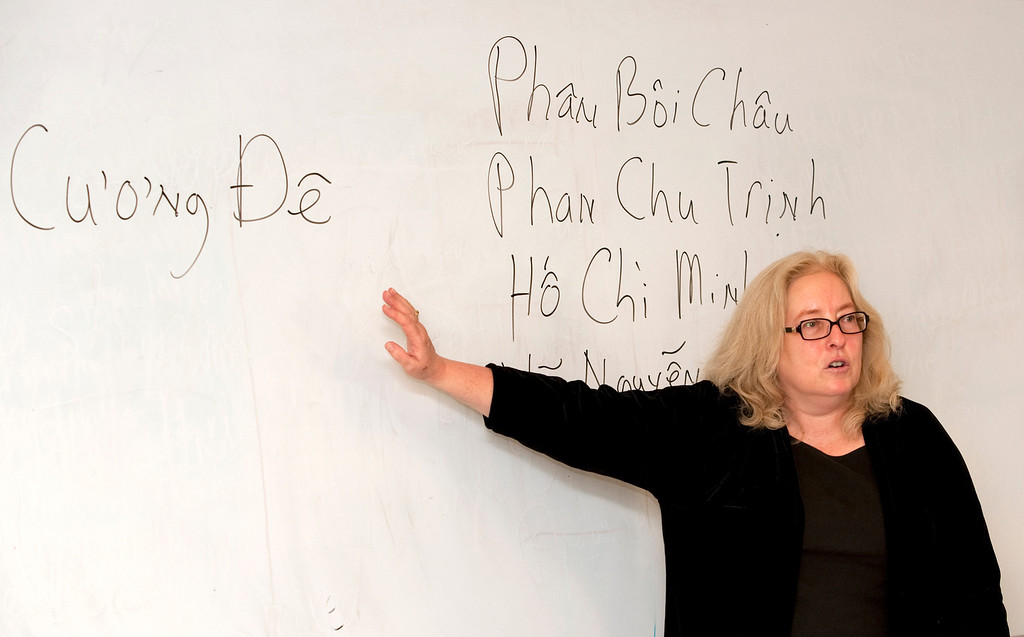Vietnam is often viewed by Americans as a country heavily influenced by China, its neighbor to the north. After all, the Vietnam War – etched in the collective memory of the Baby Boom Generation – is remembered as a proxy fight between the United States and China/Soviet Union. And it would be inaccurate to say that Vietnam has been devoid of considerable Chinese influence.
But the relationship between Vietnam and China is quite complex, according to Michele Thompson, professor of history and an expert on Southeast Asia. She explores that relationship through a medical lens in her book, Vietnamese Traditional Medicine: a Social History.
The book, published by the National University of Singapore Press, was so highly regarded by her peers that Thompson was selected as the recipient of the 2018 SCSU Faculty Scholar Award on the basis of the book.
“The (Faculty Scholar Award Committee) was impressed by your use of multilingual source material, the interdisciplinary range of your book, and the fact that it forces scholars to re-examine long-held assumptions about the relationship between Chinese and Vietnamese traditional medicine,” said Rex Gilliland, chairman of the Faculty Scholar Award Committee.
Thompson focuses on the 18th and 19th centuries, and the social and political context of Vietnamese medicine. “While it is very closely connected to Chinese medicine, it is not some carbon copy,” she said.
She points to Vietnam’s acceptance of early Western vaccination techniques as a key example in how it differentiated itself from China in the medical realm.
In the late 1700s, British doctor Ed Jenner discovered that people who had cowpox didn’t seem to get smallpox. The viruses that cause the two diseases are closely related, though cowpox usually has milder symptoms.
Jenner was a pioneer in the effort to begin a form of vaccination, albeit a primitive one. In other areas of the world – those without European cows — doctors began attempts to eradicate smallpox through arm-to-arm, human-to-human vaccination from those who had cowpox.
Vietnamese medicine preferred this Western approach to the Chinese alternative inoculation method. The latter involved taking a small amount of material from smallpox sores and transferring them to others. The Chinese method sought to produce a weakened form of the virus.
Thompson said it is an honor to be selected for the Faculty Scholar Award. “I was surprised,” she said. “I remember getting the envelope with the announcement in it, but it came at the end of the fall semester, when everything is pretty hectic. So, I just sort of randomly opened that particular envelope and was surprised to see what it said.
“But I am honored to follow in the footsteps of so many other excellent scholars before me.”
Thompson began teaching at SCSU in the fall 1998. Before coming to Southern, she taught at the University of Washington. She previously taught English as a Second Language in Taiwan.
She grew up in Alabama, and currently resides in New Haven. Her expertise is in Southeast Asia, with a particular focuses on Vietnam.


